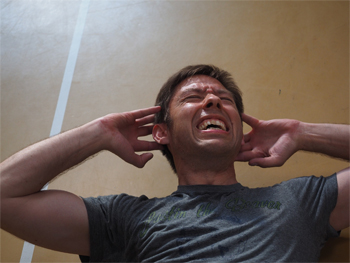Do You Exercise to "Blow Off Steam”?

Do You Exercise to 'Blow Off Steam"?
New research from Canada has shown that those who take on high intensity exercise while angry are more than twice as likely to suffer a heart attack.
'Being angry and engaging in high intensity exercise both have the same effect on the body. They can both raise your heart rate and blood pressure as well as reducing the flow of blood to the heart," explain Exercise Right spokesperson, Accredited Exercise Physiologist Carly Ryan.
The research, published in the American Heart Association's journal -Circulation', suggested a doubling of the risk association between anger or emotional upset, or physical exertion, and the onset of first heart attack symptoms within one hour.
The association was much stronger – just over triple the risk – for patients who said they had been angry or emotionally upset while also engaging in heavy physical exertion.
'Many of us use exercise as a way to combat our anger or stress, and nine times out of ten, physical activity will do the job. Exercise releases endorphins which makes us feel an overall sense of well-being and gives us extra energy, so it is a perfect way to tackle a troubled mind."
'What this study shows is that we need to be aware of two things. Firstly, mental wellness. We need to control our anger and stress levels. This is a timely topic being Mental Health Month - we need to practice self-control and mindfulness."
'The second key factor is that performing high intensity exercise in some situations can be dangerous. The term -high intensity interval training' or -HIIT' can have numerous health benefits, but you must understand your body, your health and your limitations before taking on such extreme exercise," explains Ms. Ryan.
According to the Heart Foundation, one Australian dies from a heart attack every 57 minutes. 'Heart attacks are mainly caused by atherosclerosis, which is the result of poor health choices and can often exist undetected until it's too late.
It's imperative you look after your body and consult with the right exercise professional, such as an Accredited Exercise Scientist or Accredited Exercise Physiologist, who can help put together the right exercise program to suit you and your uniqueness."
To find your local Accredited Exercise Scientist or Accredited Exercise Physiologist visit the Exercise Right website (www.exerciseright.com.au)
MORE



